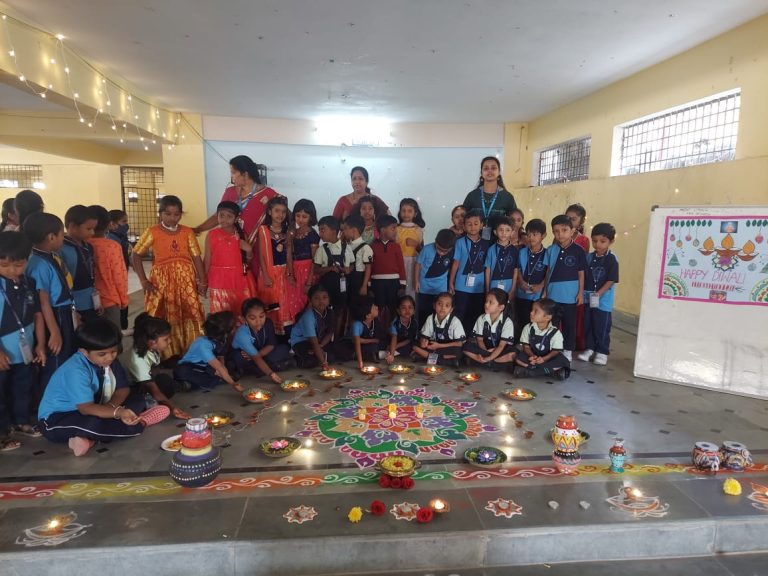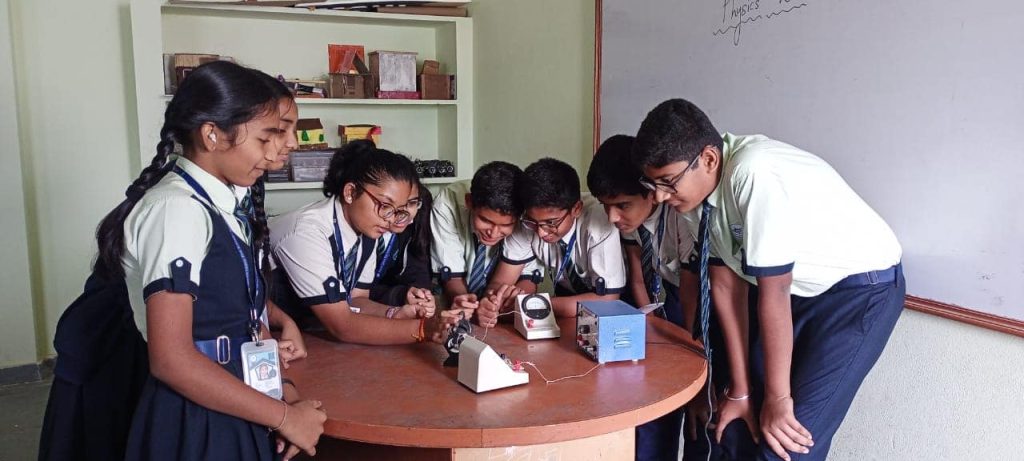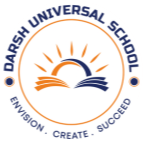Early childhood education serves as the foundation for all future learning. It is the period of ‘learning to learn’. The DUS pre-primary curriculum is delivered through the ‘ILLUME’ approach based on the following premise.
Every child is unique
Every child has infinite potential
Every child is born with an innate desire to learn
Every child learns best through observation
Every child learns and constructs her own knowledge in multiple ways

The main objective at this stage is preparing thelearner’s foundation and readying her to take on the responsibility of being an active participant in the learning process.
The Primary School Program focusses on the child’s unique potential both inside and outside the classroom and is delivered using the Darsh Octave Approach.

At this age, children are in a stage of intellectual and social development and they begin to connect themselves with the community in a larger sense. To cater to the needs of this age group, an integrated package of teaching, learning and assessment is delivered through the Litera Octave approach. Students are directed towards independent learning and are guided to take on more responsibility.
The main objective of this stage is to help the children make connections between the meaningful experiences in life and the courses of study. The learners at this stage are ready to move on to the Secondary School Program.
Interest Inventory to check what the student likes, personality profiling and career guidance Educational student council elections and life skill programs
English, Hindi, Mathematics, Science, Social Sciences Concept clarity practice sessions for quick answering and application to real-life situations
Systematic, Organised tests at regular intervals.continuous pupil-teacher interaction to plan individual study needs External examinations-Olympiad, NTSE
Now the stage is set for shaping the future based on subject preferences and skills gained. During this stage, the main objective is to hone the knowledge and skills gained at the Middle school.
Our assessments focus on identifying what students are good at instead of whether they are good or not. DUS assessments take place on a continuous basis and at the child’s pace rather than through only stressful periodic exams. Assessment patterns are based on feedback from various stakeholders including parents.

Humanities/Commerce/ Science. Coursework: lectures individual and group projects. Creative problem-solving approach

Periodic feedback to student, Summative. Assessments: Periodic tests leading to the final board examination.

Career talks and seminar series, career guidance and counseling program. Guidance on an entrance examination
| Class I to II | |
| Pre-mid Test | August |
| Mid Test | November |
| Post-Mid Test | February |
| Class III – VIII | |
| PT1 | July |
| Half Yearly | October |
| PT2 | January |
| Yearly | March |
| Class IX – X | |
| Pre-mid Term Exam | July |
| Mid-Term Exam | September |
| Post-Mid Term Exam | December |
| Annual Exam (Grade IX) | March |
| Board Exam (Grade X) | March |

DARSH UNIVERSAL SCHOOL ( formerly known as Mount Litera Zee School), began in June, 2010 under the able guidance of its Founder-Director,Mr. T. Devanandam Naidu. Since then, it has grown by leaps and bounds to the edifice it is today.